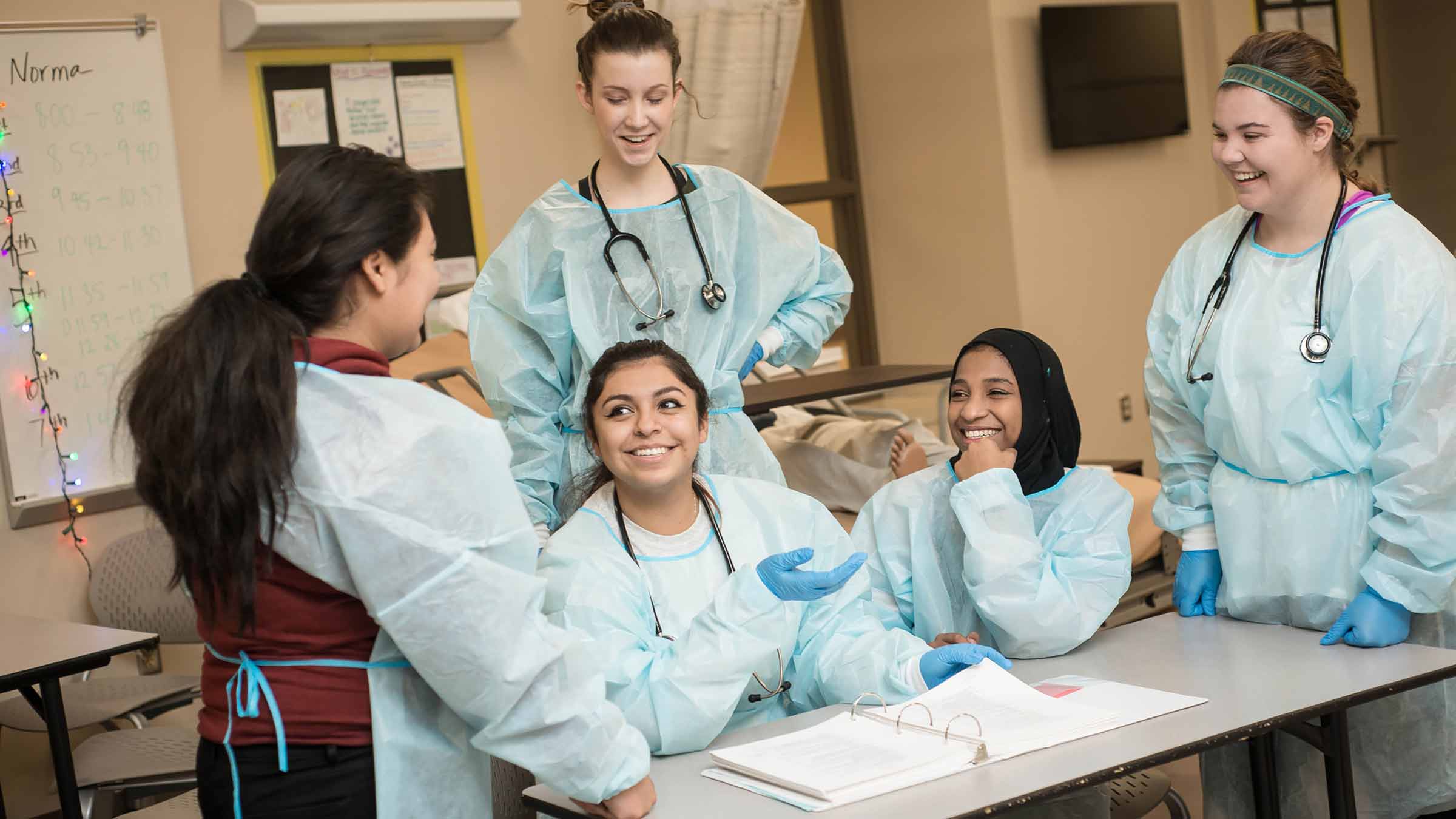
At the heart of our Career Academies model is the idea that students, families and teachers are powerful and brilliant. That is why we focus on reforming the educational system, not “fixing” students, teachers or communities. Disrupting educational inequities will require visionary systems change, bold action and a disruption of the status quo. Since 2015 Career Academies has worked to drive systemic change to advance equitable employment and educational opportunities through our community of practice and a shared commitment to continuous improvement.
At Greater Twin Cities United Way, we work to disrupt inequitable systems to maximize human potential to fuel meaningful, lasting change. In The Water of Systems Change, FSG, a mission-driven consulting firm, outlines the multiple levels of change needed to move a system toward a more sustainable and equitable position – including structural, relational and transformative change – and the role funders like United Way can play in driving that change.
Career Academies is a United Way innovation initiative that prepares high school students for zero college debt and in-demand, high-wage careers through real-world experiences and training. Within Career Academies, we approach systems change by addressing Minnesota’s educational disparities at both the structural level (funding, resources and knowledge) and the transformational (building partnerships, shifting power dynamics and rooting out harmful biases).
At GTCUW we address the challenges in our community that no one can solve alone. We know addressing a deeply intertwined issue like systemic inequity in education will take multiple approaches, requiring new forms of collaboration between sectors and across systems. We do not have a singular answer to the issue – but we do know what’s working.
One of our approaches is serving as the host of a statewide Career Academies Community of Practice. The community of practice is a bi-monthly gathering of school districts, employer partners and community organizations that hold a shared vision of career pathways centered on wealth-building for students.
We capitalize on these meetings to strategically develop connections and relationships between both systems and individuals. Our community of practice model centers on sharing knowledge, power and expertise among our diverse stakeholders. We also engage in shared learning around relevant topics and do the difficult work of breaking down the mental models that get in the way of progress and change. For example, in 2020 our sessions focused on the importance of youth voice and power in educational systems. As a result, multiple school districts within our community of practice have updated their design processes. Many of these districts now host student interns to support communications, data evaluation and strategic decisions that will in turn positively impact thousands of students across the state of Minnesota.
According to the model from FSG, “Transforming a system is about transforming the relationships between the individuals in the system” – an approach that is fundamental to the community of practice model. At one recent session, a school district administrator, local employer and community college counselor all connected in a small group discussion around work experiences for youth. Through this conversation, these stakeholders deepened their understanding of each other’s work, learned innovative best practices, and made connections that will result in high-quality opportunities for students.
It is spaces like these that build momentum around a shared vision for systems change. As one of our partners put it, “[The community of practice] exemplified the need for trailblazers in Minnesota to get together to support each other, learn from each other, innovate together and dream together.”
As a responsive grant maker and partner in the community, I strive to be receptive to learning and change, much like what I ask of the school districts I work alongside. Beyond the immediate benefits to our partners and stakeholders, our Career Academies community of practice sessions also provide valuable insights for United Way’s grantmaking strategies, ensuring that our investments continue to reflect the realities of students, communities, and local economies. This agile approach has allowed us to stay relevant despite the ongoing challenges of the pandemic through aligning our investments with the lived experience of students, families, and schools.
Through transformational efforts like our Career Academies community of practice, we are building a statewide career pathways movement, so that all students – from St. Paul to Worthington – have the opportunity, access and support to pursue purpose-driven, wealth-building careers that moves our communities toward a more prosperous and equitable future.